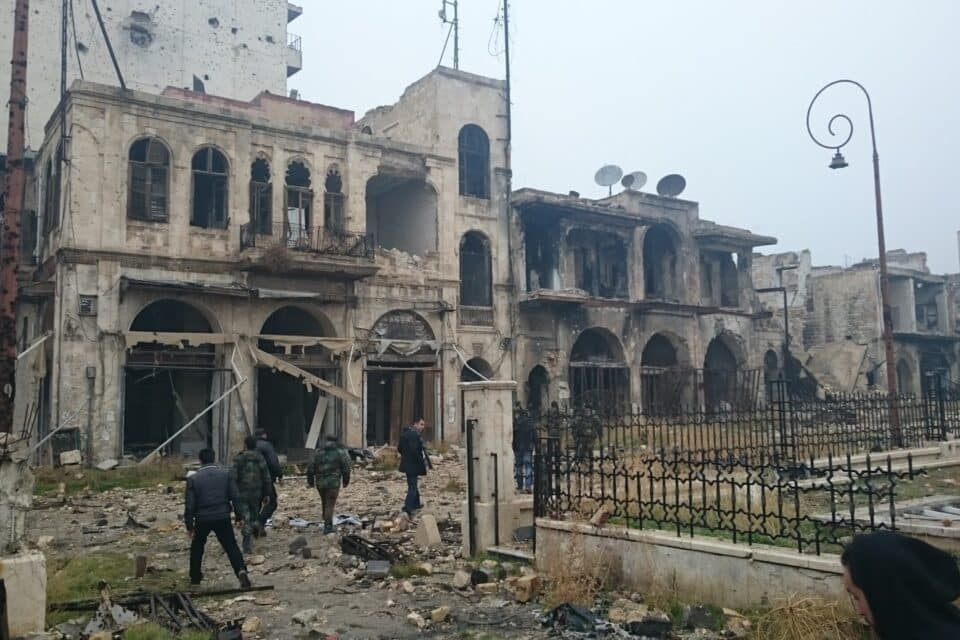Help our local partners realise their vision of hope for their communities

This month, HART has contributed to a letter, signed by over 90 international diplomats, politicians, and some of the most senior church leaders in the Middle East, calling on President Biden and Prime Minister Johnson, to end sanctions against Syria.
The humanitarian situation in Syria has deteriorated dramatically in recent months and sanctions are having a catastrophic impact on the daily lives of the whole population. Prices have soared for the citizens of Syria for even the most basic goods, meaning essentials are now too expensive for many to afford.
One example of the damaging price rises which are crippling the people of Syria is the rise in the cost of fuel. Due to sanctions, fuel is in short supply and extremely expensive. Long queues for petrol have become the norm. Gas supplies for heating and cooking are also extremely low and prohibitively expensive and in short supply. Even Syrians who can access heating fuel struggle to heat their homes because of cost. As a teacher in Damascus wrote a few weeks ago: “I can endure cold weather and my husband does, but it is hard to see your children feeling cold and you can’t do anything about it.”
Meanwhile, the US occupies Syrian oil and gas fields in the north east of the country. On 21 November 2020, the BBC reported that, “Donald Trump says he expects the United States to benefit by millions of dollars per month from Syria’s oil revenues while US troops remain in the country. Furthermore, in 2015 Islamic State declared that they earned $40 million per month from the sale of oil in north east Syria. Those supplies are now 70% controlled by US-backed Kurdish groups who are selling to the US, Iraq, and Turkey. To many, in Syria and beyond, it appears Syria’s oil supply has been misappropriated.
In addition to fuel rises, the average wage of a professional person living in Syria is equivalent to just $50 today. It is estimated that 80% of the population now live below the poverty line and it is now common for people to queue for hours every day simply buy bread. Few can afford meat. This in a country that before the war was the breadbasket of the Middle East. The sight of homeless people and beggars in the streets is now common, something which was unheard of before the war.
Contrary to the claims of western governments, medical supplies and pharmaceuticals are also hugely impacted by sanctions. Before the war, Syria was the largest exporter of pharmaceuticals in the Middle East. However, the pharmaceutical factories were mostly destroyed by militant groups and drugs must now be imported. Western drugs are very hard to come by in Syria today and are extremely expensive. So, most Syrians buy cheap drugs produced in China or the developing world, many of which they say only partially work or “do not work at all.”
As a result, Syrian people are dying due to a lack of available drugs and because hospital equipment cannot be replaced or repaired when necessary. Many doctors have died because of the inability to import adequate PPE in the face of COVID-19.
Additionally, construction machinery and materials are expensive and difficult to acquire due to sanctions which are also impacting the ability of friendly countries to help reconstruction. This policy is prolonging civilian suffering.
Finally, economic sanctions such as the ones currently imposed on Syria breed corruption, nurture a seedbed for extremism, encourage emigration, and prevent refugees from returning. Corruption, common in war and sanctions economies, is unfortunately rampant in Syria today as the black market plays an ever more important role in the lives of everyday Syrians. Extremism too continues to rise against the backdrop of the hopelessness caused that sanctions creates.
Last month, UN Special Rapporteur on Unilateral Coercive Measures, Prof. Elena Douhan, appealed for the United States to lift its economic sanctions that cruelly punish Syrian people. The Special Rapporteur stated that that U.S. sanctions, “violate the human rights of the Syrian people,” and, “exacerbate the already dire humanitarian situation in Syria, especially in the course of COVID-19 pandemic by blocking the aid, trade and investment necessary for Syria’s health system and economy to function.”
The humanitarian situation in Syria is desperate. Sanctions are affecting the most vulnerable, and the international community has a moral responsibility to support and protect innocent lives, rather than contribute to the total destabilisation and starvation of a nation – which is what current policies are achieving.
This is why sanctions on Syria must end.